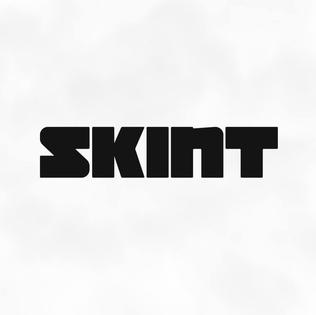
Skint Records is a Brighton and Hove based dance music record label owned by JC Reid, Tim Jeffery and Damian Harris. It was created as a sublabel of Loaded Records, also founded by Reid and Jeffery. Along with Wall of Sound, the label was a leader in the big beat music scene of the mid to late 1990s.

Shawn Moltke better known by his stage name MC Shan, is an American hip hop and R&B recording artist.

American singer Mary J. Blige began her career as a backing vocalist for Uptown Records in the early 1990s. In a career spanning more than thirty years, she has released 14 studio albums and 83 singles—including more than 20 as a featured artist. The "Queen of Hip-Hop Soul" has sold an estimate of over 100 million records worldwide, and over 20 million in the United States alone. Billboard ranked Blige as the 18th Greatest Billboard 200 Woman of all time, the 45th Greatest Hot 100 Woman of all time and 88th Greatest Artist of all time.

Pure is the second studio album by English industrial metal band Godflesh. It was released on 13 April 1992 through Earache Records. Though originally labeled only as industrial metal, the album has since been recognised as one of the earliest post-metal releases. Musically, Pure is rhythmically mechanical and features harsh guitars, with protracted songs and an abundance of deliberate repetition. Like much of Godflesh's music, it is regarded as particularly heavy and aggressive, and these elements helped it gain critical acclaim.
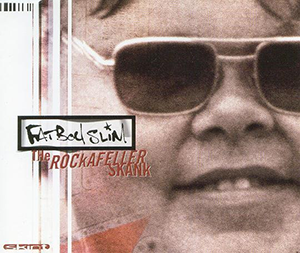
"The Rockafeller Skank", often referred to as "Funk Soul Brother" by fans, is a song by English big beat musician and DJ Fatboy Slim. It was released as the lead single from his second studio album, You've Come a Long Way, Baby (1998), on 8 June 1998. The single peaked at number six on the UK Singles Chart in June 1998 and topped the Icelandic Singles Chart for a week the same month. It was the second Fatboy Slim single to chart on the US Billboard Hot 100, peaking at number 76. In 2022, Rolling Stone ranked "The Rockafeller Skank" at number 199 on their list of the "200 Greatest Dance Songs of All Time".

"You Remind Me" is a song by American singer-songwriter Mary J. Blige. It served as Blige's first single from her debut album, What's the 411? (1992). Written by Eric Milteer and produced by Dave "Jam" Hall, it was originally used on the soundtrack of 1991 comedy film Strictly Business. The song marked Blige's first top forty hit, reaching number twenty-nine on the Billboard Hot 100 and number one on the Hot R&B Singles chart. The music video was released in 1992. The song also sampled Patrice Rushen’s 1982 song, ‘Remind Me’.
The Moody Boys or Moody Boyz are Tony Thorpe's UK-based record production and remix outfit, active since 1988.
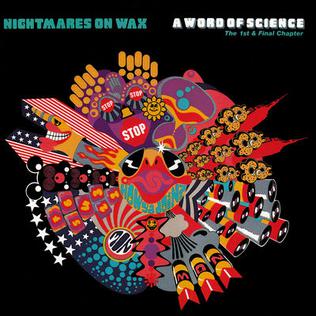
A Word of Science is the debut studio album by British electronic producers Nightmares on Wax. Released by Warp Records in September 1991, it is the act's only album as a group before it became a solo vehicle for George Evelyn. Evelyn nonetheless recorded and produced the album alone, incorporating samples and elements from demo tapes he made in the late 1980s. Although Nightmares on Wax debuted with two well-received techno singles in 1989-1990, A Word of Science is eclectic and largely moves the act towards a more mellow style influenced by funk, soul and hip hop, while still incorporating techno and house styles.
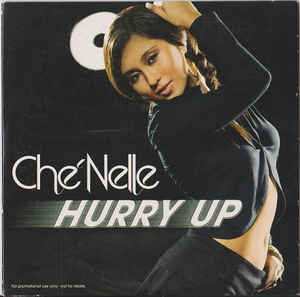
"Hurry Up" is a song by Australian singer Che'Nelle from her debut studio album, Things Happen for a Reason (2007). The song was released as the second single from the album. A music video was released for the song. The song was written and produced by both Sean Garrett and Warren Felder and was recorded in Atlanta, Georgia. The song received an official remix for its UK release featuring the rapper Tinchy Stryder.
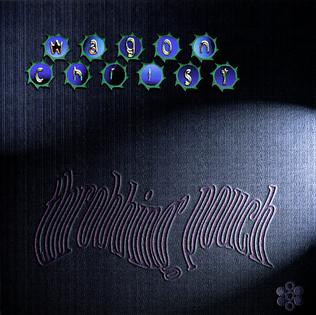
Throbbing Pouch is a studio album by English electronic musician Luke Vibert. His second studio album under the alias Wagon Christ, it was released on 20 March 1995 by Rising High Records.

"Love No Limit" is a song by American recording artist Mary J. Blige. It was co-written by Kenny Greene and Dave "Jam" Hall for her debut album, What's the 411? (1992), while production was overseen by Hall. Released as the album's fourth and final single, the song became a top five hit, reaching number-five on the US R&B singles chart, and peaked at number forty-four on the US Billboard Hot 100 chart. Hall has stated in interviews, that he wanted to give the song an urban, hip-hop feel to a much more jazzy sound, when it was created.

"You Used to Love Me" is the debut single of American singer-songwriter Faith Evans. Written by Evans and produced by Sean "Diddy" Combs and Chucky Thompson for her debut album, Faith (1995), the song was initially intended to be used on fellow Bad Boy Records signees Total's self-titled first album (1996), but was eventually claimed by Evans after she had found lyrics to Thompson's track which were inspired by another argument the singer had with then-husband The Notorious B.I.G..

"Reminisce" is a song by American singer Mary J. Blige from her debut album, What's the 411? (1992). It was co-written by Kenny Greene and Dave "Jam" Hall, who also produced it. Described as a new jack swing song inspired by 1970s soul music, it contains a sample of "Stop, Look, Listen" (1989) by American rapper MC Lyte. The single peaked at number fifty-seven on the Billboard Hot 100 and number six on the Hot R&B/Hip-Hop Songs chart. A more uptempo and hip hop-inspired remix of the song, featuring duo Pete Rock & CL Smooth, later appeared on Blige's 1993 remix album of the same name.

"A Rose Is Still a Rose" is a song recorded by American singer Aretha Franklin. It was written and produced by singer Lauryn Hill for Franklin's album of the same name (1998). The song focused on a motherly figure giving advice to a younger woman who keeps getting into bad relationships. Throughout "A Rose Is Still a Rose", Franklin advises that in spite of everything and despite the woman's "scorned roses and thorn crowns," the woman is "still a rose". Elements of the song "What I Am" by Edie Brickell and the New Bohemians were sung throughout the song by Hill herself.

"Ain't Nobody" is a song by American singer Faith Evans. It was written by Evans, Sean Combs and Chucky Thompson and produced by the latter two for her debut studio album Faith (1995). Released as the album's third single along with "Kissing You" from the soundtrack of the romance film Waiting to Exhale (1995), "Ain't Nobody" peaked at number 67 on the US Billboard Hot 100 chart and number 14 on the Hot R&B/Hip-Hop Songs chart. On Christmas Day 2015, Evans released a re-recorded version of the song on Faith 20, a six-track album composed of remakes from Faith.

Double Barrel is an album made in collaboration between American rapper Torae and Canadian hip hop producer Marco Polo. The album was released on June 2, 2009 by Duck Down Music Inc. It was preceded by Marco Polo's critically well-received debut album Port Authority (2007), and Torae's inaugural release Daily Conversation (2008) on which Polo has produced three tracks.

One is the debut studio album by English experimental electronic producer Req, recorded from September 1995 to 1996 and released on Skint Records in 1997. After releasing several EPs, Req decided to release an album to spread his sound. His conception for One was to create music that hints at a direction without ever arriving at one. Music critics had difficulty defining the album's style, and is seen as a "blunted take" on trip hop with downtempo ambience. The album was well received by critics, who praised its unique sound and production. Today, it is seen as a predecessor to the late 1990s' "intelligent big beat" of fellow Skint artists such as Lo-Fidelity Allstars, and in 2015, Fact named the album the 14th greatest trip hop album of all time.
Ian Cassar, better known as Req, is an English DJ, record producer, and graffiti artist.

Jam on Revenge is a studio album by the American group Newcleus. It was released in 1984 by Sunnyview Records. The group was formed originally as Positive Messengers following DJ shows in parks and blocks as Jam-On Productions. Positive Messengers' members were all Christian, which led to them creating songs with a message. Group member Ben “Cosmo D” Cenac attempted to bring some recordings made with Positive Messengers to music labels with little success. Following the lack of success, he was encouraged by a member of Jam On Productions to make a hip hop song, which led to the song "Jam-On's Revenge", a song Cenac described as an "anti-rap" song, as he felt hip hop music of the period was corny.

















